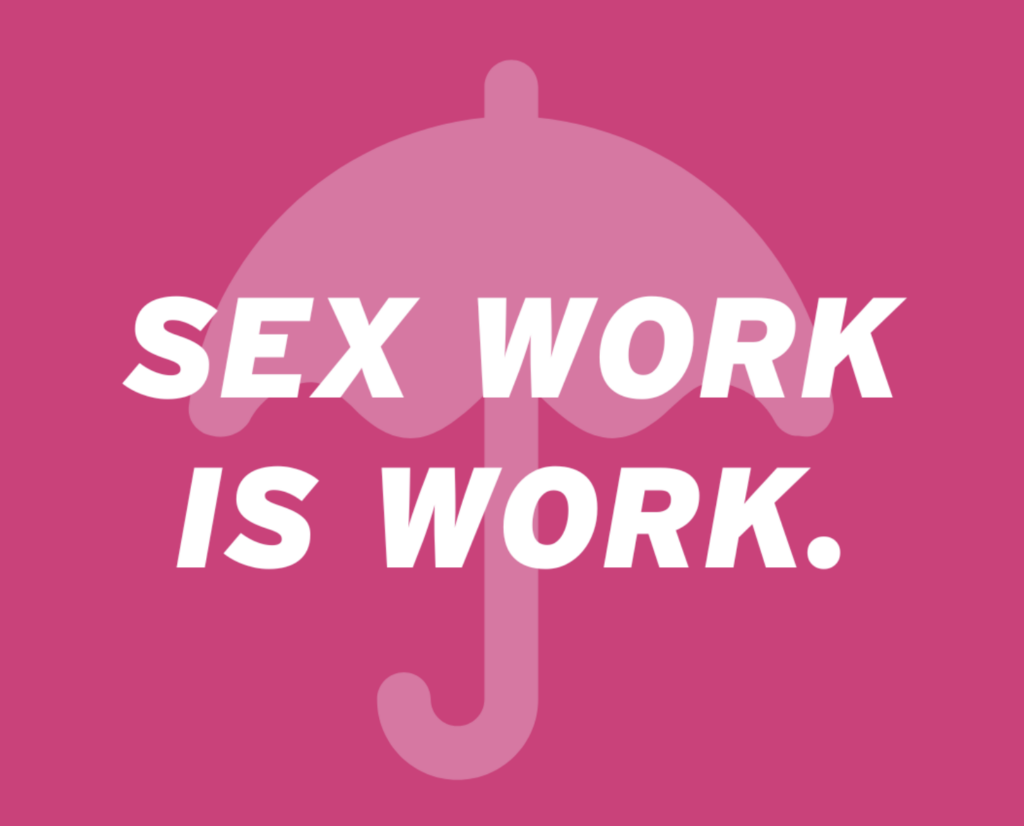By Richard Saenz, Lambda Legal Senior Attorney and Criminal Justice and Police Misconduct Strategist
Dec. 17 is International Day to End Violence Against Sex Workers. On this day, we at Lambda Legal stand in solidarity with sex workers across the globe by reaffirming our support of the decriminalization of sex work. We also support the end of discriminatory policies that target sex workers, and an end to the violence, abuse, and harassment perpetrated against sex workers.
We know that criminalization has led to arrests, collateral consequences, and police violence against sex workers. Sex workers are more likely to be targeted for violence and less likely to get help if they are attacked because telling the facts of what occurred will likely reveal their engagement in criminalized conduct. They are also less likely to go to doctors and clinics or to be forthcoming about their activities when the work they do can lead to being charged with a crime. For all of these reasons, criminalizing sex worsens public health rather than protecting or improving it. And the proof is readily available. For example, on World AIDS Day this year, the U.S. Department of Justice found that Tennessee’s enforcement of its aggravated prostitution statute violated the Americans with Disabilities Act (ADA) against people living with HIV.
Last month, Lambda Legal released a new resource based on the findings of our 2022 Protected & Served? survey as it relates to the experiences of sex workers with the criminal legal system. Of the more than 2,500 survey participants, 360 were people who answered yes to whether they had exchanged sex or sexual performance for money or other things of value within the past five years.The majority (58.4%) of these participants were people of color and about two-fifths (40.7%) identified as transgender, gender-nonconforming or nonbinary (TGNCNB). The decriminalization of sex work is a necessary step in the liberation of TGNCNB people of color.
What did we find? More than one-quarter (27.3%) of participants reported that they had been arrested before they were 18 years old. Two in five (40.1%) participants who had engaged in sex work had been detained in jail, prison, immigration detention, or juvenile detention in the past five years — compared to just 12.3% of Protected and Served? participants who had not engaged in sex work.
Nearly three-quarters (72.3%) of participants had face-to-face contact with police in the past five years. Nearly half (49.7%) of participants experienced some form of police misconduct while working in this capacity. Black, Indigenous, and multiracial participants were especially likely to experience misconduct: 68.5% of Black participants, 64.1% of Indigenous participants, and 62.5% of multiracial participants did — compared to 45.6% of Latinx participants and 39.2% of white participants. The most common type of police misconduct was demanding money (25.9%), followed by demanding sex (17.6%). It was also common for police to take participants’ phones to use for “sting” operations, looking for customers to arrest. About one in six (15.9%) participants experienced this.
These experiences should be a wake-up call for community members, advocates, and policymakers that sex workers experience high levels of misconduct and abuse in the criminal legal system. Our Protected and Served? Report offers a number of recommendations for how to work towards this goal, including the two highlighted below.
Support the decriminalization of sex work as an LGBTQ+ and racial justice issue.
Due to the disproportionate impact of sex work criminalization on LGBTQ+ communities and communities of color, sex workers and Lambda Legal support and advocate for the decriminalization of sex work. We do so by acknowledging that there is no constitutionally adequate basis to criminalize consensual sex solely because one adult pays another.
Lambda Legal supports the Stop Violence in the Sex Trades Act (“SVSTA”) a New York state bill that would repeal sections of the penal code that prohibit prostitution and end the criminalization of adults who sell or buy sex and provide relief or expungement of criminal records. States should look to replicate this bill based on the needs of their community.
Ban profiling and other discriminatory law enforcement practices.
There remains a great need for explicit and enforceable bans on profiling and discriminatory policing based on sexual orientation and gender identity.
This includes practices that lead to increased interaction with police and incarceration, such as so-called “Quality of Life” or “Broken Windows” policies, as well as paraphernalia laws that use the possession of condoms or safe-use kits as evidence against sex workers. LGBTQ+ people disproportionately experience homelessness, engage in sex work, and live with disabilities — all of which are criminalized under the aforementioned policies.
Find the full Protected and Served? Report on sex work here.
Head here to check out our other recent blog posts, including pieces on World AIDS Day and Trans Awareness Week.

